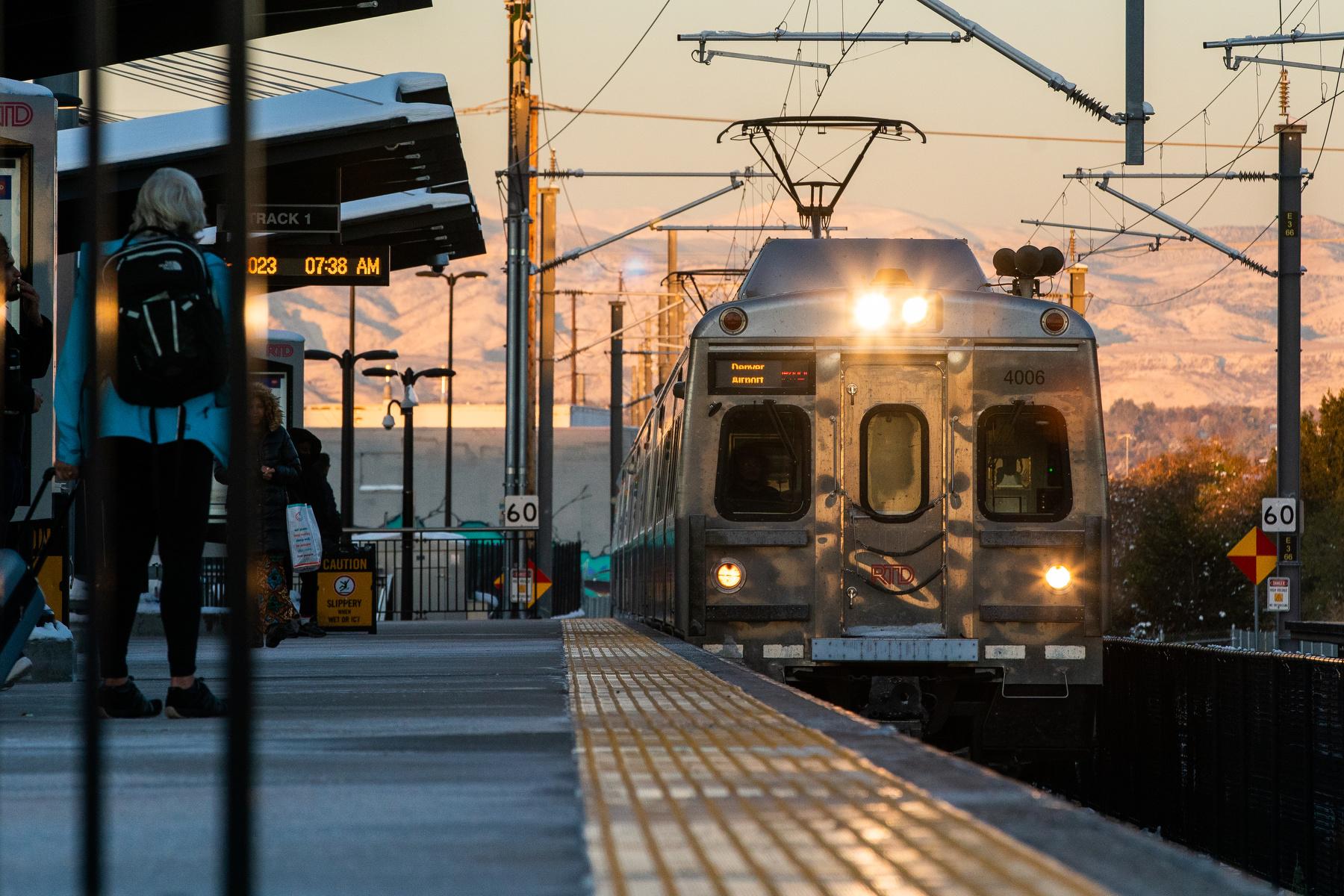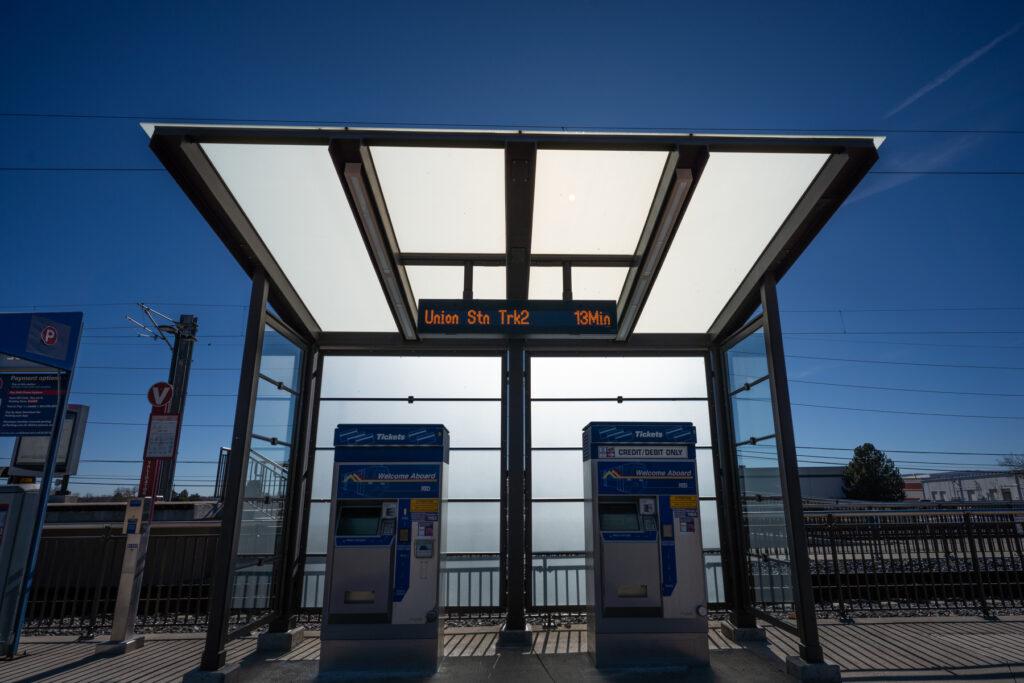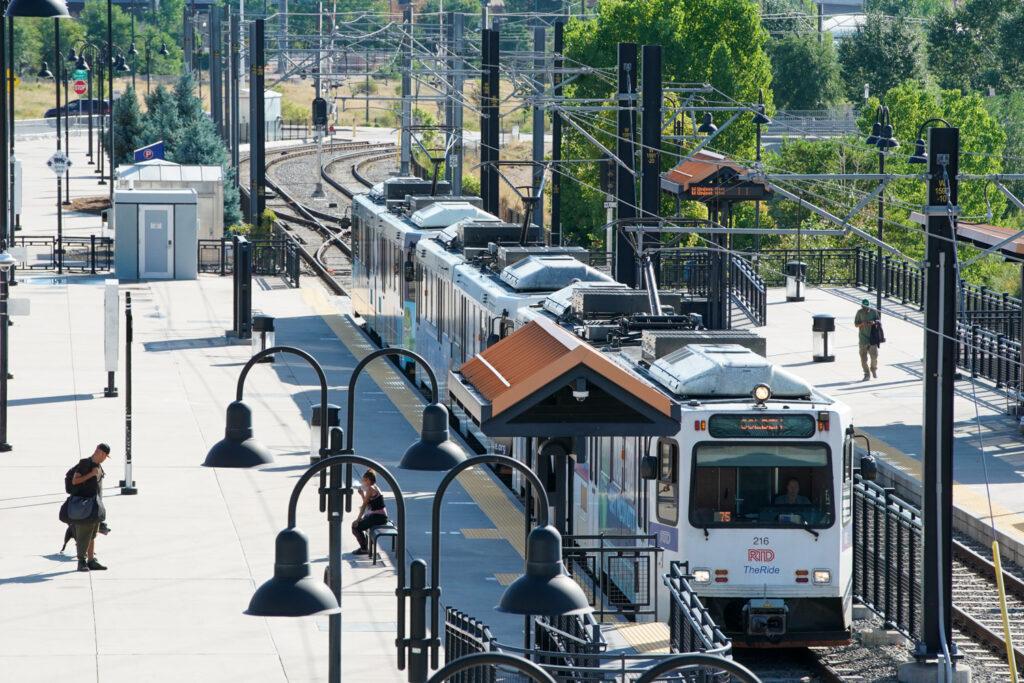
A new legislative proposal from influential Democrats would eliminate 10 elected positions from the Regional Transportation District board and give the governor more influence over the state’s largest transit system.
The measure, which is expected to be introduced in the next week or so, would mark the biggest change to RTD’s leadership in more than 40 years.
Gov. Jared Polis and other state leaders have grown increasingly frustrated with the transit district, which has struggled to grow ridership in recent years and has failed to build a long-promised train line to Boulder that was approved by voters 20 years ago.
“This is about providing transparency to the district, accountability to the district, and a level of professionalization that we need for the next era of transportation and housing in this state,” said Rep. William Lindstedt of Broomfield, a Democratic sponsor of the measure.
The measure would:
- Reduce the board’s total size from 15 members to seven members
- Allow the governor to appoint two of the members, with the state Senate’s confirmation
- Convert the board from a “district” system, where every member represents a specific area, to an “at-large” system where every member represents the entire district
- Increase the pay of RTD board members from $12,000 to about $35,000 a year
- Set new requirements for how RTD plans transit service and works with other bodies
The changes could be important as Polis creates a new plan to build statewide transit systems. In a separate bill, Democrats are advancing plans to build a rail line up and down the Front Range. As part of that project, they want RTD to help build out the segment from Denver to Boulder.
But some of the transit agency’s leaders and supporters aren’t sold on that costly plan yet — and some RTD supporters see the new measure as a way to brush their resistance away.
Angie Rivera-Malpiede, a former RTD board chair, called the measure a “power shift” that could “annihilate RTD” as it stands today.
The governor “wants his train, he's going to have it, and that's it,” she said. “He doesn't care what the ramifications are, including eliminating the voice of the community.”
JoyAnn Ruscha, a current board member representing northeast Denver, compared the measure to an insurrection.
“This is a coup because a group of folks want more and feel like they're not getting enough,” Ruscha said.

The bill’s sponsors and supporters deny it’s a power play linked to current transit projects, instead saying it’s meant to solve long-standing problems.
“Despite the billion of dollars worth of investment in expanding the system over the past couple of decades, including the FasTracks rail investments, we haven't seen significant increase in ridership and reduction in greenhouse gas emissions and air pollution that we would've expected,” said Matt Frommer, an advocate with the sustainability nonprofit SWEEP.
“A lot of local governments don't feel like they're getting enough out of the system, compared to what they're paying into the system,” he added.
The draft measure is set to be cosponsored by Sen. Faith Winter and Rep. Meg Froelich, both Democrats.
Currently, RTD has “too big a board to be really nimble, and it has not been an effective governance model,” said Froelich, of Englewood.
The draft bill also includes other changes, such as:
- Requiring more coordination between RTD and the Denver Regional Council of Governments
- Requiring RTD to “coordinate its schedule” with other transit services in its area
- Requiring a third party to study the size of the district and ways to improve service with a focus on “ridership, efficiency, and equity”
- Setting up a mass-transit driver training program through the state government
- Giving RTD more latitude as it cuts deals to develop property
The measure has strong support from the governor.
“The Governor applauds the bill sponsors for their work to strengthen transit in our state, provide more transparency and accountability to taxpayers, and to meet the needs of Coloradans while supporting more housing near transportation hubs and improving our air quality,” wrote Shelby Wieman, a spokesperson for Polis, in an email.
The effects of an at-large system
The measure wouldn't just shrink the RTD board and give the governor more influence over it. It also could change the balance of power between the district’s high-density and low-density areas.
There would no longer be board seats dedicated to serving specific areas, whether that’s downtown Denver or suburban Douglas County, far from Denver’s city core.
Some reformers believe that the district system has led to myopic decision-making, with board members focused on maintaining long transit lines that serve each district, rather than building a compact and efficient network in the urban core.
“One downside of having 15 districts in our territory is that they all get one vote, but not all of them are really built for transit service,” Frommer said.
“You’ve seen this dynamic where board members are currently advocating for their part of the region, and so we end up with a system where service is spread thin like peanut butter, instead of focusing on ridership,” said Molly McKinley of the Denver Streets Partnership, a nonprofit considering supporting the bill.

Under the new system, those district lines would be erased by 2027. Instead, every voter in RTD’s taxing area would be allowed to vote for all five of the remaining elected seats on the board. Candidates could win the election by focusing on the larger cities and population centers.
Jeff Toborg, the mayor of Parker, said that his city in the southern metro would struggle for representation in the new system.
“Our thoughts and how we feel is not going to be represented,” he said. But he said the current system is also failing Parker since its single district representative is drowned out on the board of 15.
Rep. Lindstedt said the goal was not to cut representation for particular areas, but instead to ensure all the board’s members are taking a systemwide view.
The measure also is drawing criticism from some advocates and leaders in Denver. Ruscha and others argue an at-large system will dilute the influence of communities of color since Black and Latino votes would no longer be focused on a particular district election.
“We will oppose legislation that will alter the composition of the board,” said Ean Tafoya, state director for the nonprofit GreenLatinos. “We believe that we deserve direct democracy and access from an equity perspective. We think [the current model] is our best chance.”
Lindstedt responded to those equity concerns by pointing out that RTD has only had a handful of Black and Latino board members in its current setup, and many of them were appointed rather than elected.
He suggested equity concerns could also be addressed with tweaks to the legislation.
Christopher Nicholson, an RTD board candidate, said the measure was being rushed, with little more than a month left in the legislative session.
“We've had this system for 44 years. These conversations can wait six months, and I hope the sponsors will seriously consider doing that,” he said.
A “professionalized” board
Lindstedt said the bill ultimately aims to create a more professional and engaged board.
“The way RTD’s board functions is a national outlier. Most transit boards are around seven to nine people. We're at 15. Very few transit executive boards are entirely elected,” he said. “There’s very few people that run for these positions. You have tons of members that are unopposed.”
In 2022, there were no ballot-qualified candidates in half of the board’s elections, The Denver Post reported. The result, Lindstedt said, was a board that “lacks the expertise, the time, because it’s such a part-time job, to provide proper accountability and transparency to the district.”
That message won over Toborg, who said he ultimately supports the bill, quipping it “might help, couldn’t hurt.” He’s hopeful because the bill aims to create a “professionalized” board that will be more responsive to constituents.
“It gives me a little hope that there is some expectation of responsiveness, which doesn’t exist today with this organization,” he said.
Erik Davidson, the current chair of the RTD board, said the board hasn’t taken a stance on the proposal yet.
“It's a challenging time because we're on a compressed timeline to review legislative proposals, and it is very important that the RTD board and its leadership maintain focus on some of the most immediately pressing issues facing the agency,” he said.
- How Colorado could use rental cars to fund its big railway expansion
- Locals call on Bustang Outrider to add route from Chaffee County to Colorado Springs Airport
- After failed land use bill, Gov. Polis aims to link climate, housing and transit — and tie state funding to RTD overhaul
Editor's note: This article was updated March 26, 2024 to note that Denver Streets Partnership has not decided whether to support the measure.









